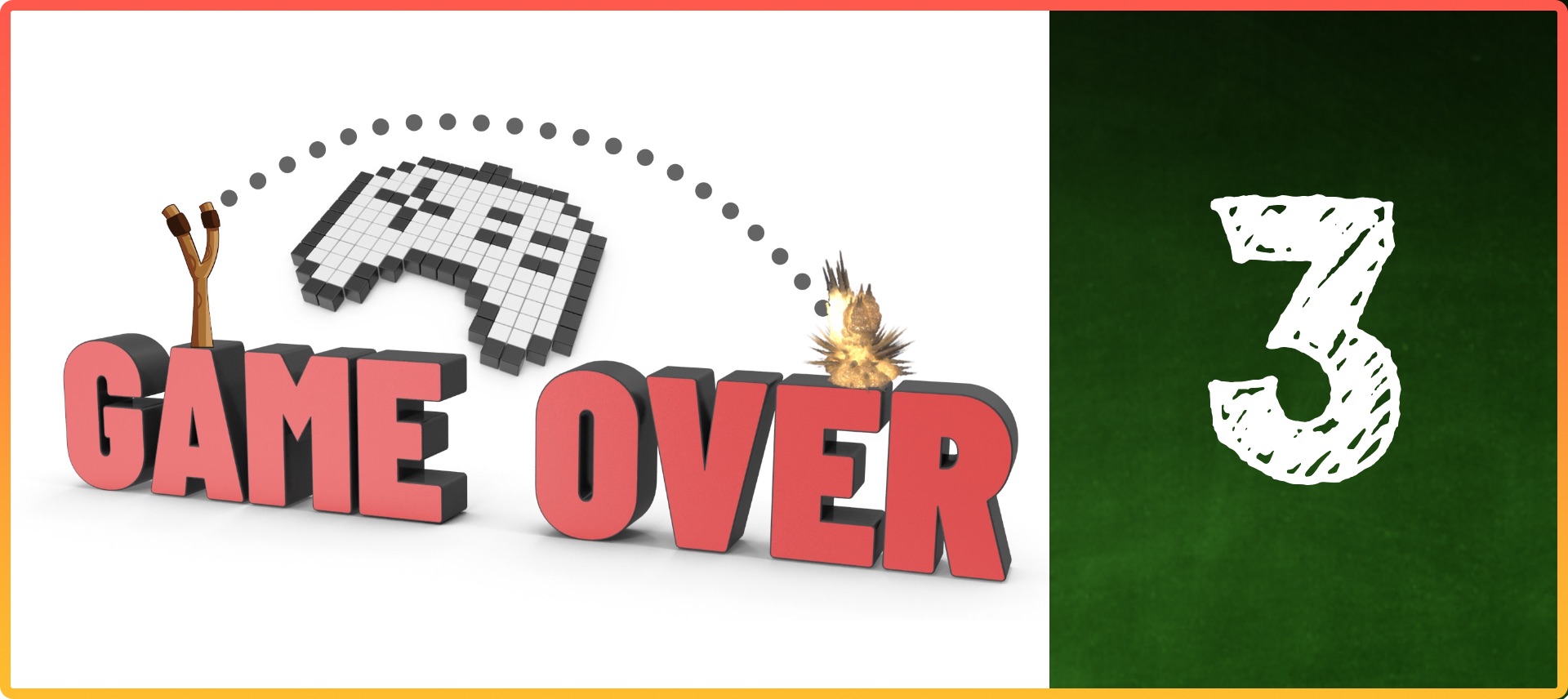Projekt 3: "Angry Birds im Terminal"

3. Das Spielfeld aufbauen
3.2. Vögel & Schweine zeichnen
Nachdem Boden und Schleuder nun eingezeichnet und ausgegeben sind, wird es Zeit, die in den beiden Vektoren Bird und Pig gespeicherten Spielobjekte ebenfalls zu zeichnen.Dazu werden wir der Klasse GameArea eine neue Funktion namens DrawObject() hinzufügen, die du im folgenden Code-Listing sehen kannst.
// Klasse für das Spielfeld-Objekt
class GameArea
{
public:
// Konstruktor inkl. Aufbau des Spielfelds
GameArea(int num_rows, int num_cols)
{
// Spielfeld-Größe festlegen
m_num_rows = num_rows;
m_num_cols = num_cols;
cout << "Spielfeld mit " << num_rows
<< " Zeilen und " << num_cols << " Spalten\n";
// Bodenebene und Schleuder positionieren
m_ground_level = m_num_rows - 1;
m_slingshot_pos = 5;
// Spielfeld initialisieren
m_game_area.resize(m_num_rows,vector<char>(m_num_cols,' '));
// Bodenebene einzeichnen
for (int col = 0; col < m_num_cols; ++col)
{
m_game_area[m_ground_level][col] = '_';
}
// Schleuder einzeichnen
m_game_area[m_ground_level][m_slingshot_pos] = '|';
m_game_area[m_ground_level - 1][m_slingshot_pos] = '|';
m_game_area[m_ground_level - 2][m_slingshot_pos - 1] = '\\';
m_game_area[m_ground_level - 2][m_slingshot_pos + 1] = '/';
m_game_area[m_ground_level - 3][m_slingshot_pos - 2] = '\\';
m_game_area[m_ground_level - 3][m_slingshot_pos + 2] = '/';
}
// Hinzufügen von Spielobjekten in die jeweiligen Listen
void AddGameObject(GameObject *object)
{
// Objekt in passende Liste hinzufügen
if (object->m_type == BIRD)
m_game_birds.push_back((Bird *)object);
else if (object->m_type == PIG)
m_game_pigs.push_back((Pig *)object);
cout << "Objekt-Typ " << object->m_type << " hinzugefügt ("
<< m_game_birds.size() << " Vögel, "
<< m_game_pigs.size() << " Schweine)\n";
// y-Koordinate anpassen, da y=0 am unteren Rand sein soll
object->m_position.y = m_ground_level-object->m_position.y;
// Objekt zeichnen
DrawObject(object, object->m_symbol);
}
// Objekt mit Symbol in Spielfeld einzeichnen
void DrawObject(GameObject *object, char symbol)
{
// Objekt nur einzeichnen, falls im darstellbaren Bereich
int col = round(object->m_position.x);
int row = round(object->m_position.y);
if (row>=0 && row<m_num_rows && col>=0 && col<m_num_cols)
m_game_area[row][col] = symbol;
}
// Den Inhalt des Spiefelds im Terminal ausgeben
void PrintGameArea()
{
// Spielfeld in Kommandozeile ausgeben
for (int y = 0; y < m_num_rows; y++)
{
for (int x = 0; x < m_num_cols; x++)
{
cout << m_game_area[y][x];
}
cout << endl;
}
}
// Member-Variablen
vector<Bird *> m_game_birds; // Liste aller Vögel
vector<Pig *> m_game_pigs; // Liste aller Schweine
int m_num_cols; // Feldgröße in x (Zelle = 1m)
int m_num_rows; // Feldröße in y
vector<vector<char>> m_game_area; // 2D-Spielfeld
int m_slingshot_pos; // x-Position der Schleuder
int m_ground_level; // Lage der Bodenebene
};
/*******************/
int main()
{
// Spielobjekte erzeugen
Bird b1(0.0, 0.0), b2(2.0, 0.0), b3(4.0, 0.0);
Pig p1(30.0, 0.0), p2(50.0, 0.0, 1000);
// Spielobjekte erzeugen
int rows{15}, cols{70};
GameArea area(rows, cols);
// Spielwelt bevölkern
area.AddGameObject(&p1);
area.AddGameObject(&p2);
area.AddGameObject(&b1);
area.AddGameObject(&b2);
area.AddGameObject(&b3);
// Spielfeld in Kommandozeile ausgeben
area.PrintGameArea();
return 0;
}